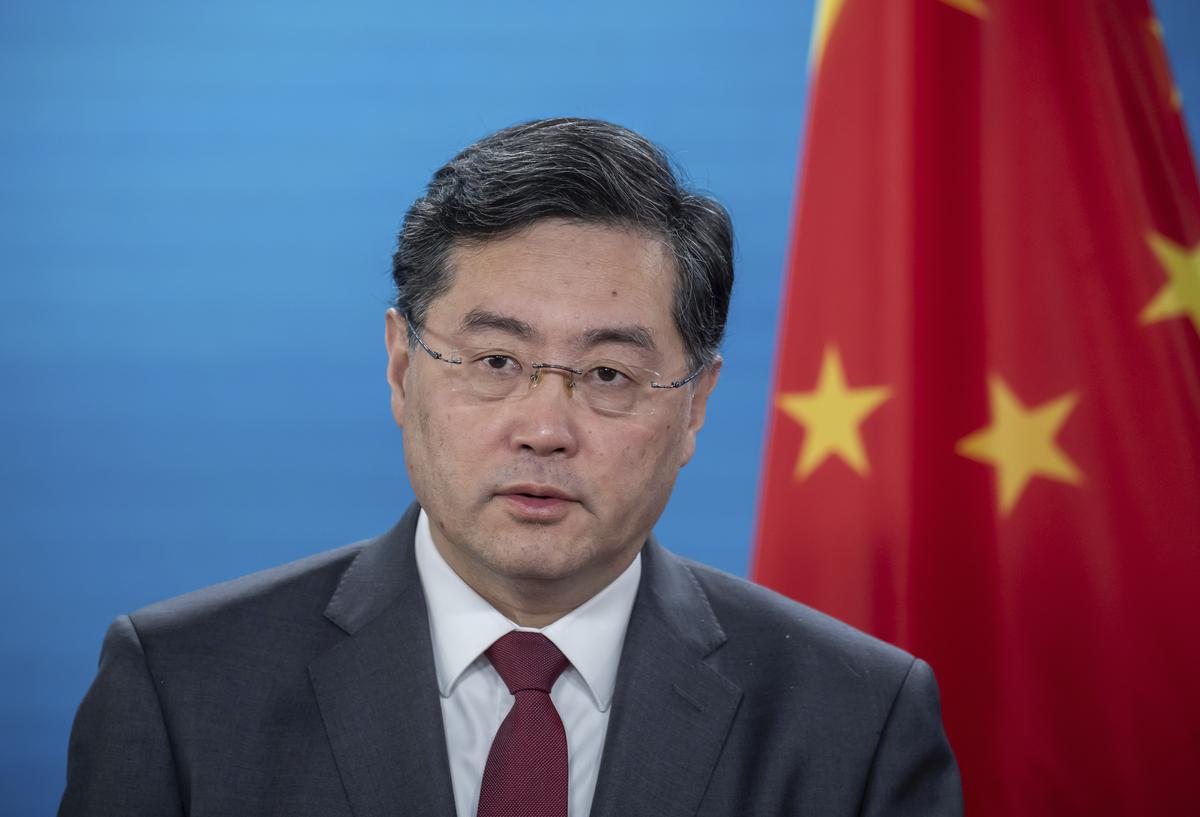FOOLS_NIGHTMARE
ELITE MEMBER

- Joined
- Sep 26, 2018
- Messages
- 18,063
- Reaction score
- 12
- Country
- Location
Only two weeks before the arrest of Mr. Khan, Beijing was playing host to Pakistan’s Chief of Army Staff Syed Asim Munir

Two days after the arrest of Imran Khan and widespread protests across Pakistan, the country’s “all-weather” ally China is yet to comment on the unfolding political crisis there.
Beijing’s silence is indicative of its broader approach to Pakistan, which has come to lean heavily on the military establishment. Indeed, only two weeks before the arrest of Mr. Khan, Beijing was playing host to Pakistan’s Chief of Army Staff Syed Asim Munir, perhaps the only foreign military chief who routinely meets with China’s top diplomats besides the military brass. Only three days before the arrest, the Army chief held talks with visiting Chinese Foreign Minister Qin Gang, who was in Pakistan for trilateral talks with Afghanistan.
In Beijing, the Army chief met with Politburo member and top diplomat Wang Yi, who is Director of the Communist Party’s Central Commission for Foreign Affairs, on April 27. Mr. Wang pointedly described the Pakistan Army as “a staunch defender of Pakistan’s national security and stability, and also a staunch defender of China-Pakistan ‘ironclad’ friendship.” “China,” he added, “appreciates the successive Pakistani governments and all political parties for firmly pursuing friendly policies towards China and standing with China on issues concerning China’s core interests and major concerns.”
Mr. Wang’s comments point to the broad view in China’s strategic community that the Army, rather than civilian elected governments, can be better relied upon by Beijing to ensure stability. For China, the protection of its personnel in Pakistan is among its highest priorities, a problem highlighted routinely by top officials, including President Xi Jinping, in the wake of continued attacks on them.
While in Pakistan, Mr. Qin stressed “that stability is a prerequisite for development, and security the foundation of strength and prosperity.” He said that China “sincerely hopes that all political forces in Pakistan will build up consensus, maintain stability, respond more effectively to domestic and external challenges, and pool efforts to grow economy and improve people’s livelihood.”
Hu Shisheng, a leading South Asia scholar at the China Institutes of Contemporary International Relations in Beijing, said his “general feeling is that the arrest of the former Prime Minister will lead to more political chaos, more political demonstrations on the streets.” He suggested that the Army, Courts and political establishment will look “to end this political drama in the coming days” and that Mr. Khan’s PTI would remain a political force.
Wang Dehua, Director and Professor of the Institute of South and Central Asia Studies in Shanghai, was critical of Pakistan’s political “elites”. “As Pakistan stands on the brink of economic collapse and runs out of money, the country’s elite must honestly take stock. For far too long, they have relied on regressive taxes and extractive economic policies to impoverish the masses while enriching themselves,” he said. “This inability of Pakistan’s elites to internalise and grapple with the ongoing crisis is reflected on mainstream and social media, where the conversation, to this day, has barely matured beyond the typical finger-pointing and arguments in bad faith that are the norm in the country’s political landscape.”
“Pakistan’s Army has a history of meddling with political affairs, but I think the Army chief’s China visit has no link with… internal tensions,” he added. “Some [are] worried the arrest of the former Prime Minister of Pakistan will affect the relationship but I do not think so,” he added. “As long as India exists and has some strength, this is the ballast stone of the relationship between China and Pakistan. This fact will not be changed by….Pakistan’s internal affairs.”





